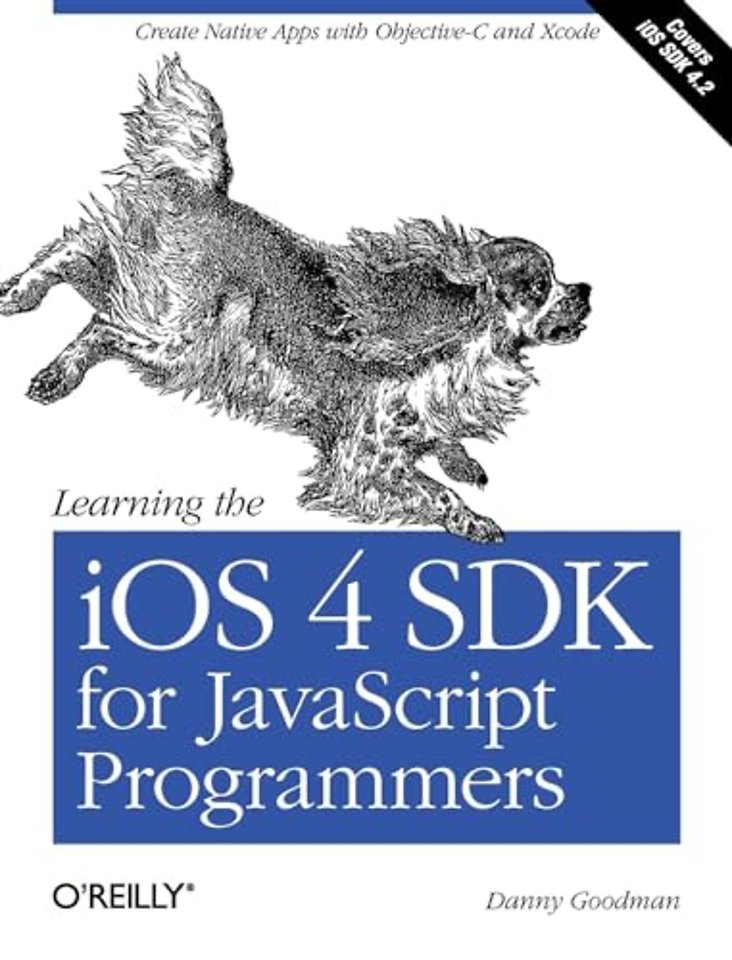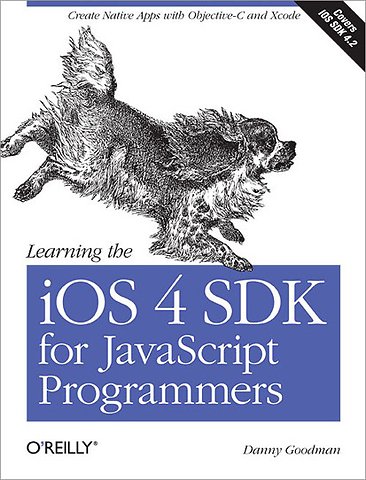Learning the iOS SDK for JavaScript Programmers
Samenvatting
Is it possible for JavaScript programmers to learn Apple's iOS 4 SDK and live to tell the tale Technology guru Danny Goodman did, and with this book he leaves a well-marked trail for you to follow. An authority on JavaScript since its inception, Goodman understands the challenges you might face in creating native iOS apps with this SDK, and introduces Xcode, Objective-C, and Cocoa Touch in a context you'll readily understand.
Why bother with the SDK when you can simply build web apps for Apple's iOS devices Web apps can't access an iPhone's music library, camera, or iOS system software for maps, audio, and more. Nor can you sell web apps in the App Store. If you want to take full advantage of the iPhone and iPad, iOS 4 SDK is your tool -- and this is your book. Includes full coverage of iOS SDK 4.2.Learn the distinction between web app and iOS native app programmingCreate a workbench app to test code snippets throughout the learning processGet a structural view of an iOS app, and compare the process of building objects in Objective-C versus JavaSciptDiscover how your code launches iOS apps and makes them user-readyLearn about iOS memory management details that are different from JavaScript, including pointers and data typesUse Objective-C and Cocoa Touch to implement common JavaScript tasks
Specificaties
Inhoudsopgave
What You Need to Start;
What’s in This Book;
Conventions Used in This Book;
Using Code Examples;
How to Contact Us;
Safari® Books Online;
Acknowledgments;
Chapter 1: Why Go Native?;
1.1 Using an App Offline;
1.2 More Access to the Hardware;
1.3 More Access to the Software;
1.4 What You Lose;
1.5 Taking the Plunge;
Chapter 2: Welcome to the iOS SDK;
2.1 Hardware and OS Requirements;
2.2 Installing the SDK;
2.3 About iOS Developer Programs;
2.4 Inside the SDK;
2.5 Viewing Developer Documentation;
2.6 Loading Code Samples;
2.7 Setting the Project’s Base SDK;
2.8 Trying the iOS Simulator;
2.9 Coming Up...;
Chapter 3: Creating a Test Workbench;
3.1 Creating the Project in Xcode;
3.2 Building the User Interface;
Chapter 4: Structural Overview of an iOS App;
4.1 Where It All Begins: APIs;
4.2 Frameworks;
4.3 Welcome to Class Files;
4.4 Using Xcode to Create DGCar Class Files;
4.5 Integrating the DGCar Class into Workbench;
4.6 Recap;
Chapter 5: App Execution Flow;
5.1 Some C Language Roots in an iOS App;
5.2 An Introduction to Delegates;
5.3 iPhone App Development Design Patterns;
5.4 The Importance of Views;
5.5 Recap;
Chapter 6: Central Objective-C Concepts: Pointers, Data Types, and Memory Management;
6.1 Pointers;
6.2 Data Typing;
6.3 Memory Management;
6.4 Recap;
Chapter 7: C Language Fundamentals;
7.1 Variable Names;
7.2 Variable Scope;
7.3 Constant Values;
7.4 Functions;
7.5 C Structures;
7.6 C Arrays;
7.7 Enumerated Types;
7.8 Operators;
7.9 Program Flow Constructions;
7.10 Boolean Values;
7.11 Math Object Equivalents in C;
7.12 Inserting Comments;
7.13 Recap;
Chapter 8: Objective-C/Cocoa Touch Fundamentals;
8.1 More About Classes;
8.2 Real Classes in Real Action;
8.3 Class Properties;
8.4 About NSString;
8.5 About NSArray;
8.6 About NSDictionary;
8.7 Arrays and Dictionaries in Action;
8.8 Recap;
Chapter 9: Common JavaScript Tasks in Cocoa Touch;
9.1 Formatting Numbers for Display;
9.2 Creating a Date Object;
9.3 Calculating Dates;
9.4 Downloading Remote Files Asynchronously;
9.5 Reading and Writing Local Files;
9.6 Sorting Arrays;
9.7 Capturing User-Entered Text;
9.8 Validating Text Entry with Regular Expressions;
9.9 Using Regular Expressions for Text Search and Replace;
9.10 Dragging a View Around the Screen;
9.11 Recap;
Getting the Most from Xcode Documentation;
Common Beginner Xcode Compiler Errors;
Error Messages;
Warning Messages;
Glossary;
Colophon;
Net verschenen
Rubrieken
- aanbestedingsrecht
- aansprakelijkheids- en verzekeringsrecht
- accountancy
- algemeen juridisch
- arbeidsrecht
- bank- en effectenrecht
- bestuursrecht
- bouwrecht
- burgerlijk recht en procesrecht
- europees-internationaal recht
- fiscaal recht
- gezondheidsrecht
- insolventierecht
- intellectuele eigendom en ict-recht
- management
- mens en maatschappij
- milieu- en omgevingsrecht
- notarieel recht
- ondernemingsrecht
- pensioenrecht
- personen- en familierecht
- sociale zekerheidsrecht
- staatsrecht
- strafrecht en criminologie
- vastgoed- en huurrecht
- vreemdelingenrecht

